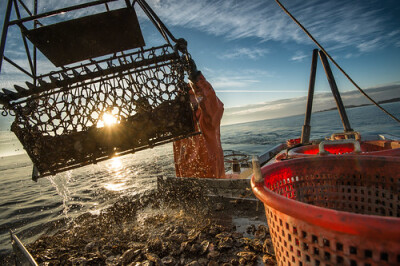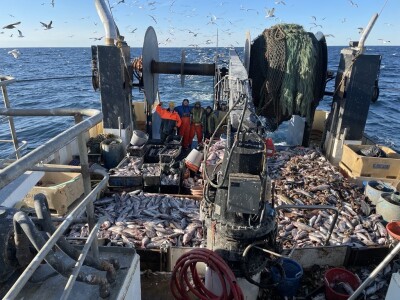A North Atlantic right whale calf with serious head injuries from an apparent vessel strike was seen swimming with its mother off South Carolina, and federal and state wildlife officials asked mariners to report any new sightings of the pair.
The adult female whale, dubbed by right whale researchers as Juno was the first documented right whale mom of the season according to the National Marine Fisheries Service. The pair were initially spotted Nov. 28, off Georgetown, S.C., marking the calf as the first of nine born to the highly endangered species, now estimated to have a population only around 350 animals.
The mother and calf were last seen prior to the injury on Dec. 9 off Amelia Island, Fla., according to NOAA. Southeast U.S. waters are the winter calving grounds for North Atlantic right whales, the destination for pregnant females that migrate over 1,000 miles from New England and Canada from November through January.
Ship strikes are a danger to right whales, which swim at or near the surface and are hard for mariners to see because of their dark coloration and lack of fins showing above water.
The danger may be elevating as ship traffic increases to Southeast ports like Charleston, S.C., Savannah, Ga., and Jacksonville, Fla. Small vessels pose a danger too; a charter fishing boat returning St. Augustine, Fla., near dusk in 2021 killed a calf and injured the mother whale, which was never sighted again.
The NOAA Fisheries Southeast Region office was notified Jan. 6 of the injured calf, sighted by anglers and the crew on a charter fishing vessel that was stopped off Edisto, S.C., and approached by the young whale on Jan. 3.
“Videos shared by the public on social media show several propeller wounds on the head, mouth, and left lip of the calf consistent with a vessel strike,” according to a summary posted by NOAA workers. “These injuries may impact this calf’s ability to nurse successfully.”
NOAA Fisheries biologists assessed the images showed of serious injury and “this means the whale is likely to die as a result. We will continue to work with authorized responders to monitor this calf and further document its injuries,” according to the agency statement.
In NOAA’s tally of right whale deaths and injuries, the South Carolina incident is the 35th serious injury in the agency’s ongoing Unusual Mortality Event impacting North Atlantic right whales. Since 2017 NOAA has documented 122 right whales, with 36 dead, 35 seriously injured, and 51 otherwise sick or injured whales.
Biologists with the Georgia Department of Natural Resources assessed that “the calf’s injuries appear severe but they are not fresh,” according to a statement from the state agency.
“Images taken by the anglers show the wounds covered in cyamids. The presence of the small crustaceans commonly found on whales indicate the wound is at least a few days old. But the injuries may affect the calf’s ability to nurse,” according to the Georgia DNR.
NOAA requires most vessels over 65 feet long to transit at 10 knots or less through right whale “seasonal management areas” the agency delineates along the Southeast and Mid-Atlantic coasts and harbor approaches. But audits of ship speeds using Automatic Identification System data – in reports by both NOAA itself and environmental groups – have shown cargo vessels often exceeding the 10-knot limit.
NOAA has proposed extending the 10-knot speed rule to vessels under 65 feet in seasonal management areas, in the face of bitter opposition from recreational boatbuilders, charter and party fishing captains, small passenger vessel operators and others.
Environmental advocates took the South Carolina report as a new reason to slam NOAA for not moving the speed rule extension forward.
“At a time when every single calf is vital to the survival of the critically endangered right whale, once again one has been struck and mortally injured by a vessel,” said Jane Davenport, senior attorney at Defenders of Wildlife.
“A right whale calf currently has a 1 in 14 chance of dying before its first birthday from a vessel strike. Yet the Biden administration is inexplicably dragging its feet in finalizing a new regulation to protect vulnerable mother-calf pairs from being run over by boats — and suffering protracted, agonizing deaths like the one Juno’s calf likely faces — if they aren’t killed outright.”







